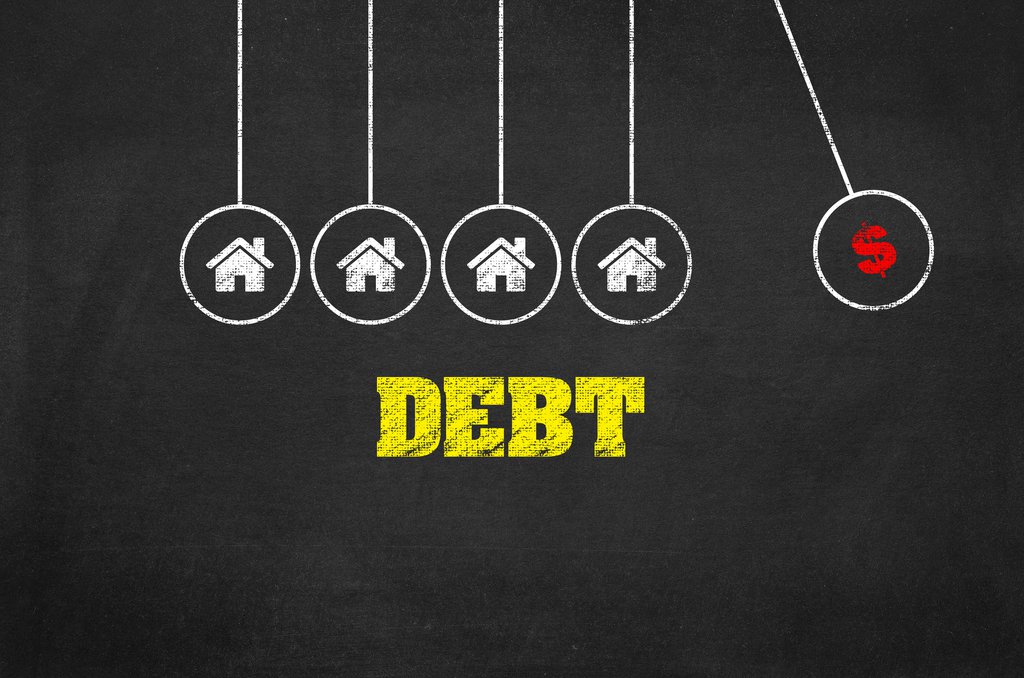How to consolidate your debt with bad credit?

How Can I Consolidate My Debt If I Have Bad Credit?
A debt consolidation entails paying off multiple big or small loans with one lower interest loan. Essentially, these smaller loans are all being rolled over into one single larger loan that carries a much smaller interest rate. As a result, this enables a much lower single monthly payment instead of having to pay multiple bills at different times.
There are multiple reasons why people choose to obtain a debt consolidation loan. Some of these include:
-
Peace of mind: Instead of having to track multiple bills each month along with their payment dates, borrowers now only have to make a payment towards the one consolidated loan.
-
Interest rate reduction: Typically, a debt consolidation loan will have a lower rate of interest than the other debts. For example, if a person is paying off credit card bills accruing 18% interest, then using a debt consolidation loan with a rate of 4% to 6% or so can potentially save hundreds of dollars a month.
-
Smaller monthly payments: A debt consolidation loan can be structured in such a way that it increases the length of time that the borrower has to repay the loan. Note that while increasing the length of the loan reduces the monthly payment, you do end up paying more interest over the life of the loan.
-
Be debt-free faster: Due to the lower rate of interest charged, borrowers can be free of debt at an accelerated pace with the use of a debt consolidation loan (provided they maintain the same volume of repayments that they were used to making from before the time that they obtained the new consolidated loan).
Home Equity Loans
There are several different ways to consolidate debt. Banks, credit unions and other finance companies all offer several products that can help a borrower achieve this objective. In this article, we will explore the use of the home equity loan to consolidate debt, also known as a “ second mortgage ”. This kind of home equity loan essentially uses the equity built in the house over time as collateral for the debt being offered.
To put it in more simple terms, picture a homeowner who has bought a house for $500,000 many years ago with an initial down payment of $100,000. Since the purchase of the property, the homeowner made additional mortgage principal repayments of $100,000. Assuming the house is still worth the same $500,000 that the homeowner originally paid for it, that means that the owner has now accumulated $200,000 of equity in their home ($100,000 down payment + $100,000 of mortgage principal repayments = $200,000).
If he or she is seeking a debt consolidation loan, they would then go to their mortgage broker who would then choose the best lender and provide an appraisal report that validates the value of the house. The lender would then lend $200,000 to this borrower, which is secured by the value of the house. In the event that a borrower fails to make interest payments on time, the house would be foreclosed upon and the lender would keep the proceeds up to $200,000.
It is also pertinent to note that there are several variations of a home equity loan. While one of these variations is as described above, the other consists of an instrument called the Home Equity Line of Credit (HELOC for short) which are typically provided by banks and other institutional lenders. In this arrangement, borrowers have a cap on the amount that can be borrowed. This cap is the value of the equity in the home. With banks, this value is typically capped up to 80% of the value of the home when considering all mortgage balances and home equity line of credit combined. Thereafter, they can draw down in any amount up to the cap and only incur interest fees for the amount drawn at that time.
For example, if the cap is $200,000 as above and the borrower only needs $100,000, then he or she would draw down $100,000 as a home equity line of credit from the bank and pay interest on only that amount as opposed to the full $200,000.
Advantages of Home Equity Loans as a Debt Consolidation Tool
Home equity loans can have multiple benefits when used for debt consolidation. Some of these include:
-
Immediate cash: Once all procedures are completed, the bank provides the borrower with cash on a relatively quick timeline. This can be used to pay down the debts that carry with them higher rates to prevent further incurrences of the higher interest charges.
-
Lower monthly payments: Mortgages will almost always have a lower interest rate than any other type of debt simply because they are backed by something as stable as a physical property. Therefore, as a result of the higher-rate debt being rolled over into the mortgage, your monthly interest payments (and total payments) can go down substantially.
-
Longer term: If the borrower has high levels of debt that are not feasible to be paid back in the short term, a debt consolidation loan can spread that debt over the remaining life of the mortgage to provide borrowers with additional time.
-
Available to borrowers with poor credit: Borrowers with poor credit scores and troubled credit profiles often have a hard time securing new mortgage debt without incurring exorbitantly high rates. However, if they are a homeowner with available equity in their home, they can obtain the debt consolidation loan at a relatively cheaper rate as the loan would be secured by the value of the house. In this case the credit score is not a primary consideration at that point.
Disadvantages of Home Equity Loans as a Debt Consolidation Tool
Despite these advantages, there are some downsides to using home equity loans for debt consolidation. Here are a few:
-
Risk of losing the home: In the event of the borrower not being able to pay back interest on time, the home can get foreclosed upon by the lender. In this case, the borrower can potentially lose their home, and primary place of living, as home equity loans are generally provided only on primary residences or second homes. Having said that, we do work with several lenders who do provide home equity loans on investment properties.
-
Debt cycle: This type of loan can potentially instil poor financial habits. Once the borrower obtains the debt consolidation loan and starts to accumulate the savings from lower interest costs each month, they may be tempted to use those savings to buy other items – which would ultimately put them back at square one.
Before undertaking a debt consolidation loan, particularly via a home equity loan, borrowers should speak to a financial advisor , who can better guide them on the process and its specific risks and benefits to their unique financial profiles.





